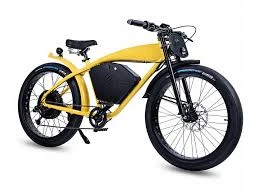
- Afrikaans
- Albanian
- Amharic
- Arabic
- Armenian
- Azerbaijani
- Basque
- Belarusian
- Bengali
- Bosnian
- Bulgarian
- Catalan
- Cebuano
- Corsican
- Croatian
- Czech
- Danish
- Dutch
- English
- Esperanto
- Estonian
- Finnish
- French
- Frisian
- Galician
- Georgian
- German
- Greek
- Gujarati
- Haitian Creole
- hausa
- hawaiian
- Hebrew
- Hindi
- Miao
- Hungarian
- Icelandic
- igbo
- Indonesian
- irish
- Italian
- Japanese
- Javanese
- Kannada
- kazakh
- Khmer
- Rwandese
- Korean
- Kurdish
- Kyrgyz
- Lao
- Latin
- Latvian
- Lithuanian
- Luxembourgish
- Macedonian
- Malgashi
- Malay
- Malayalam
- Maltese
- Maori
- Marathi
- Mongolian
- Myanmar
- Nepali
- Norwegian
- Norwegian
- Occitan
- Pashto
- Persian
- Polish
- Portuguese
- Punjabi
- Romanian
- Russian
- Samoan
- Scottish Gaelic
- Serbian
- Sesotho
- Shona
- Sindhi
- Sinhala
- Slovak
- Slovenian
- Somali
- Spanish
- Sundanese
- Swahili
- Swedish
- Tagalog
- Tajik
- Tamil
- Tatar
- Telugu
- Thai
- Turkish
- Turkmen
- Ukrainian
- Urdu
- Uighur
- Uzbek
- Vietnamese
- Welsh
- Bantu
- Yiddish
- Yoruba
- Zulu
Dec . 05, 2024 14:23 Back to list
how to adjust a mountain bike rear derailleur
How to Adjust a Mountain Bike Rear Derailleur
Adjusting the rear derailleur on a mountain bike is a crucial skill that every cyclist should learn. Proper adjustment ensures smooth and accurate shifting, which enhances your riding experience and prolongs the lifespan of your components. This article provides a step-by-step guide on how to adjust the rear derailleur effectively.
Understanding the Rear Derailleur
Before diving into the adjustment process, it’s essential to understand the purpose of the rear derailleur. Its primary function is to move the chain between different gears on the cassette, allowing you to manage your bike's speed and torque efficiently. The derailleur works in conjunction with the shifters, cables, and the cassette, so any misalignment in these components can affect performance.
Tools You’ll Need
Before you begin the adjustment, gather the necessary tools 1. A Phillips or flat-head screwdriver (depending on your derailleur). 2. A 5mm Allen wrench (for most derailleur attachments). 3. A chain checker (to ensure your chain isn’t worn out). 4. A torque wrench (optional but recommended for precise tightening).
Step-by-Step Adjustment Process
Step 1 Inspect the Rear Derailleur
Start by inspecting the rear derailleur for any visible damage or dirt. A malfunctioning derailleur can hinder proper functioning, so make sure everything looks intact. Clean any debris or mud that may obstruct operation. Also, check the chain for wear; a worn chain can lead to poor shifting performance.
Step 2 Set the Limit Screws
The limit screws control how far the derailleur can move in either direction
. There are typically two screws marked ‘H’ (high) and ‘L’ (low).how to adjust a mountain bike rear derailleur

- High limit screw This screw ensures that the chain does not move beyond the smallest sprocket. Shift to the smallest chainring and the smallest rear cog. Adjust the ‘H’ screw until the jockey wheel aligns closely with the smallest cog. - Low limit screw This screw prevents the chain from going off the largest sprocket. Shift to the largest chainring and the largest rear cog. Adjust the ‘L’ screw until the jockey wheel is aligned properly with the largest cog.
Step 3 Adjust the B-Tension Screw
The B-tension screw affects the distance between the derailleur’s pulley wheels and the cassette. Adjusting this can improve shifting performance by preventing the chain from getting stuck or skipping gears. Use the following steps
- Shift to the largest rear cog. - Turn the B-tension screw to either increase or decrease the distance. A general rule is to keep a small gap (about 5-6mm) between the upper pulley and the largest cog when in this gear.
Step 4 Fine-Tuning Cable Tension
Proper cable tension is critical for responsive shifting. If the lever feels tight or shifting is sluggish, you may need to adjust the cable tension.
- Shift to the middle cog on the cassette. - Use the barrel adjuster, typically located on the derailleur or shifters, to make small adjustments. Turning it counterclockwise increases tension; clockwise decreases it. Aim for smooth and quick shifts between cogs.
Step 5 Test the Shifting
Once you’ve made the adjustments, it’s time to test them. Shift through all the gears, both up and down, to ensure that the derailleur is functioning smoothly. Pay attention to any skipping or hesitation. If shifting is not as smooth as desired, revisit the adjustments, particularly the cable tension and limit screws.
Conclusion
Regularly adjusting the rear derailleur on your mountain bike optimizes your riding experience and prevents undue wear on components. With practice, the steps outlined above will become second nature, ensuring that your bike is always set up for peak performance. Remember, a well-maintained bike is not just more enjoyable to ride; it can also be safer, helping you tackle those challenging mountain trails with confidence!
-
Innovative Custom Stroller Solutions for Global Markets Excellence
NewsAug.05,2025
-
Premium Kids Four Wheeler Models for Wholesale Buyers
NewsAug.05,2025
-
Ebike 24 Revolutionizes Modern Urban Transportation
NewsAug.05,2025
-
Electric Scooter Kids Powering Safe Childhood Adventures
NewsAug.05,2025
-
Premium Kids Bikes for Global Wholesale Buyers 2024
NewsAug.05,2025
-
Precision Mountain Bike Derailleur Engineering Defines Global Cycling Excellence
NewsAug.05,2025
-
The Ultimate Kids' Four-Wheeler Experience
NewsJul.09,2025



